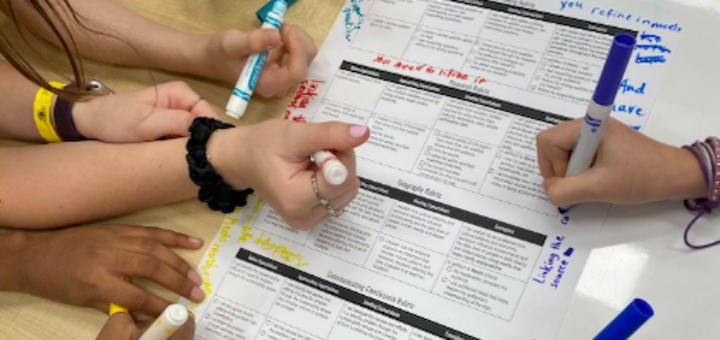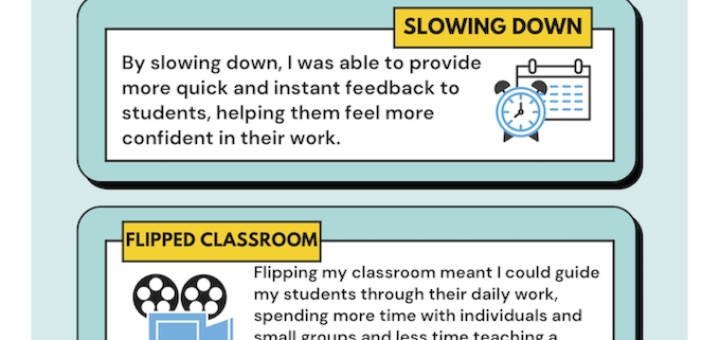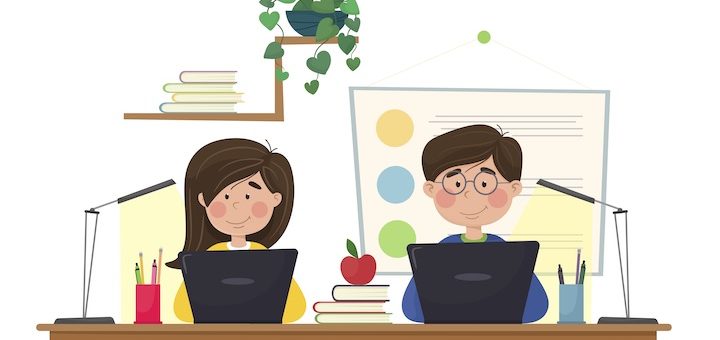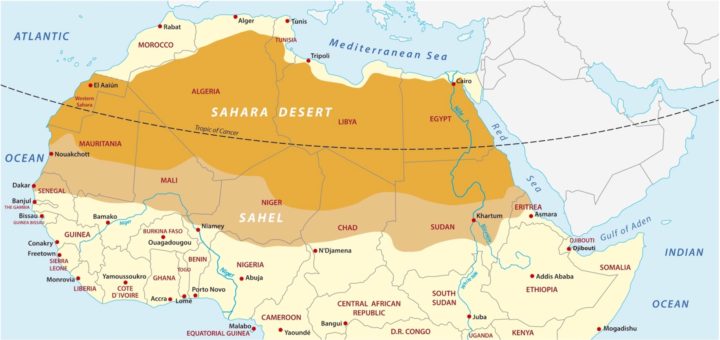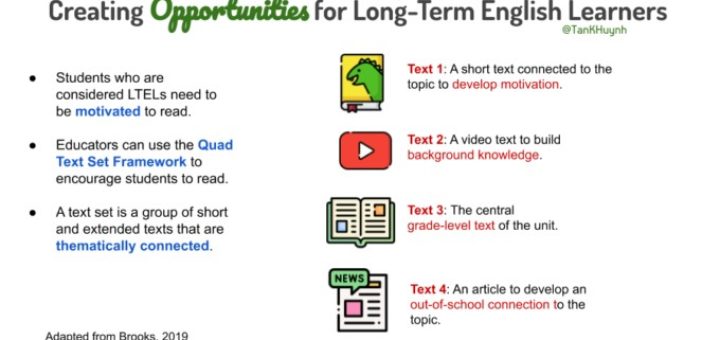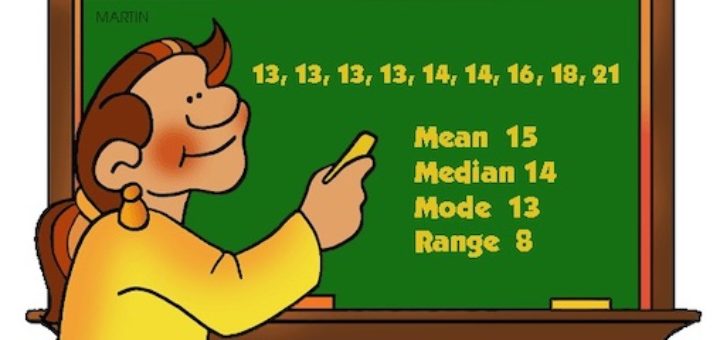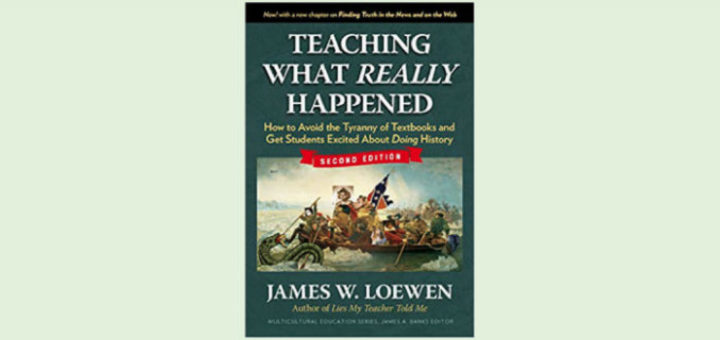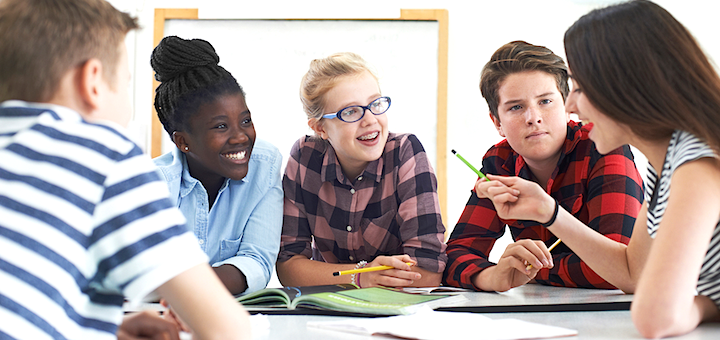Tagged: student engagement
The more students interact with the rubric, the more ownership they take over it, writes Megan Kelly. Once they feel empowered by the rubric, they can use it as a tool to accomplish their goals rather than a means of judgment, putting them on the same team as the teacher.
Amid all the stress and organized chaos that comes with state testing, there can be bright moments that make everyone smile. AP DeAnna Miller shares how her school’s staff (and students) brightened their test season to encourage kids to do their best after a challenging year.
Co-editors John Norton and Susan Curtis highlight 15 of MiddleWeb’s most popular posts for middle level educators during the past 12 months. You’ll find articles that were new in 2021 or rediscovered and shared widely in this second “weirdest year ever.”
In this pandemic year Katie Durkin adopted 3 new practices she’ll be carrying forward: going paperless; slowing down the curriculum to provide more feedback to students; and using the Flipped Classroom model.
Education stakeholders agree that student engagement is essential. The challenge arises when we’re asked to define and measure it. Curtis Chandler shares a number of free methods and tools educators can use to measure three types: behavioral, emotional, and cognitive.
Teacher, author and adolescent literacy consultant Cris Tovani guides us through her 6Ts (Topic, Target, Task, Text, Time, and Tending) as she tells the story of her first virtual literacy workshop – with 7th graders who are studying the Sahara Desert. Engagement? CYA!
It’s past time to rethink the label “Long-term English Learner,” writes EL teacher Tan Huyhn. He shares Dr. Maneka Brooks’ ideas for involving students designated as LTELs in their own learning, including text sets that relate to their experiences beyond the classroom.
Michelle Russell realized her students were falling into a rut. They expected her to provide the steps and jump in to help instead of figuring some things out for themselves. Learn what she did to increase engagement and deepen thinking during a challenging unit.
In a new edition of Teaching What Really Happened, Loewen moves beyond textbook distortions of historical facts and calls for teaching unvarnished history to educate “critical citizens.” History educator Michael DiClemente highlights insights all K-12 teachers can use.
Using the Reading Response strategy, Marilyn Pryle writes, class time becomes a time of meaningful discovery. Students do not passively ingest information but actively create ideas through their own thinking, writing and discussion. Teachers facilitate, clarify and celebrate.

